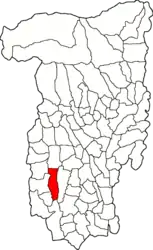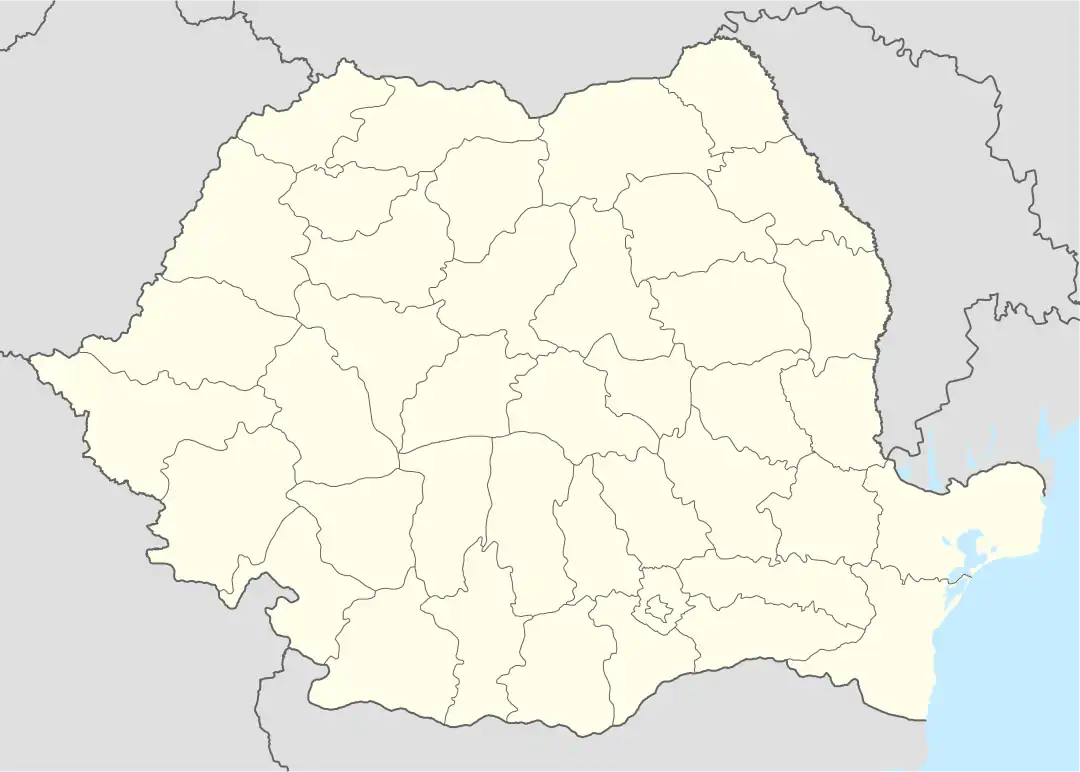Tetoiu | |
|---|---|
 Location in Vâlcea County | |
 Tetoiu Location in Romania | |
| Coordinates: 44°45′N 23°55′E / 44.750°N 23.917°E | |
| Country | Romania |
| County | Vâlcea |
| Population (2021-12-01)[1] | 2,206 |
| Time zone | EET/EEST (UTC+2/+3) |
| Vehicle reg. | VL |
Tetoiu is a commune located in Vâlcea County, Oltenia, Romania. It is composed of seven villages: Băroiu, Budele, Măneasa, Nenciulești, Popești, Tetoiu, and Țepești.
In the Bugiulești area in 1962, the paleoanthropologist Constantin S. Nicolăescu-Plopșor uncovered several humanoid fossilised bone fragments, including a skull, believed to belong to a variety of Homo habilis (dubbed Homo olteniensis or Australoanthropus olteniensis) dating back roughly two million years, which would make them the oldest hominid fossils in Europe,[2] although the discovery and authenticity has been questioned.[3] Some of the artefacts are currently exhibited in the Museum of Oltenia in Craiova, although the more "controversial" findings are located in the Vasile Pârvan Institute of Archaeology.
References
- ↑ "Populaţia rezidentă după grupa de vârstă, pe județe și municipii, orașe, comune, la 1 decembrie 2021" (XLS). National Institute of Statistics.
- ↑ "Primul om din Europa a fost descoperit la Vâlcea". ramnicuvalceaweek.ro (in Romanian). 19 January 2016. Retrieved 8 August 2022.
- ↑ "Cel mai „batran" Homo Sapiens din Europa descoperit in Romania". mixdecultura.ro (in Romanian). 12 May 2015. Retrieved 8 August 2022.
